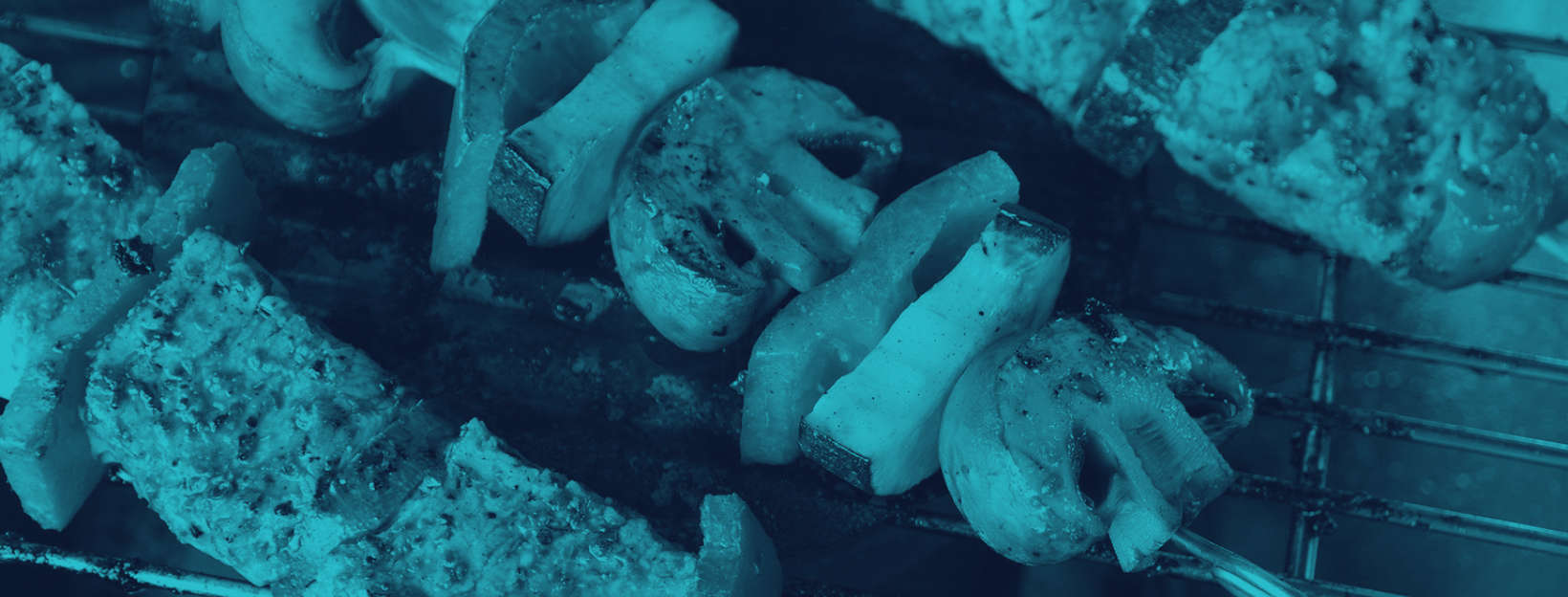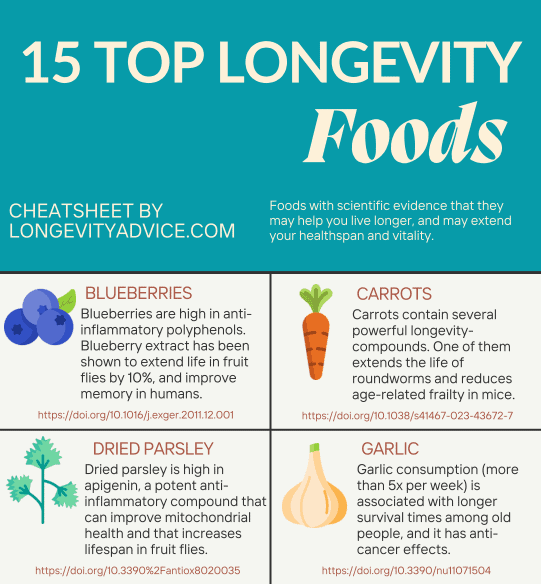Affiliate Disclaimer: Longevity Advice is reader-supported. When you buy something using links on our site, we may earn a few bucks.
Hickory and oak wood and charcoal are the scents of summer. I associate that campfire smell with fireworks, screaming with neighborhood kids while jumping through a lawn sprinkler, and Dad at the grill with a Blue Moon in hand. Barbeque is a wonderful pastime. So help me, nothing will pry it out of my red-blooded American hands, especially not on the Fourth of July.
And that’s a bit of a problem, as I’m also pursuing human life extension. I’m not talking about the potential fire hazard that grilling is (or the associated $37 million of property damage they cause every year). The trouble is carcinogens. There are a lot of well-established barbecue health risks.

So how can spanners—or people devoted to extending their healthspans and lifespans—continue barbecuing without compromising one of the summer’s most important activities?
Let’s take a look at the research.
When we talk about barbecue health risks, what are we really talking about?
In short, polycyclic aromatic hydrocarbons (PAH) and heterocyclic amines (HCA). Let’s turn that jargon into something understandable.
PAH are a class of naturally occurring chemicals that are produced when garbage, tobacco, wood, gas, oil, and coal burn—they are a major reason why even second-hand tobacco smoke is so dangerous.
When animal fat drips through the grate on a barbecue and burns, the carbon inside “gets combusted in flames,” Rashmi Sinha, senior investigator in the Division of Cancer Epidemiology and Genetics at the National Cancer Institute tells the New York Times, “and those hydrocarbons get carried up in the smoke.” Meat then becomes enveloped in dangerous, smoke-based carcinogens, which is a particular risk for colorectal cancer.
Know that sticky black char that forms on grill grates? Those are HCAs. When creatine—found exclusively in animal muscle meat—meets heat, the meat’s amino acids react, creating char marks. According to the National Cancer Institute, HCAs may contribute to cancer of the “breast, colon, liver, skin, lung, prostate, and other organs.”
There are also Advanced Glycation End Products, or “AGEs.” As you age, you naturally accrue AGEs through . Diet is the prime source of AGEs. Unfortunately, high AGEs result in premature aging. And even worse, foods that are grilled or barbecued tend to have higher amounts of AGEs than others, especially if that food happens to have animal protein.
Of course, most people don’t eat barbecue every day. But if you’re looking to make the most of this summer with grilling more than a few times a month, mitigate your barbecue health risks with these simple tips.
1. Clean your grill
That gunk that builds up on your grill is carcinogenic, and the more it gets charred, the more dangerous it gets.
Popular Mechanics adds, “Those carbon deposits aren’t just ugly; grease and sugary sauces can stick to them and harbor bacteria. And excessive carbon buildup can cause the grill to heat unevenly, not reach full operating temperature, and gas-burner tubes to prematurely fail.” In other words, keeping your grill clean will also keep your grill working, which means more barbecue in the future.
Use a long-handled wire brush, grill-cleaning soap, and white vinegar and water to get the job done. Home Depot has a great tutorial on how to clean all kinds of grills if you don’t know how to get started.
2. Burn with the right material

Some smoke is worse for you than others.
Opt for briquettes with 100% hardwood—no oil, no limestone, and definitely no petroleum. A few good brands include Royal Oak and Fire and Flavor. If you’re relying on wood for a fuel source, choose hardwoods, like oak, hickory, and mesquite.
And if you have a choice, opt for a gas grill. They’ve been shown to produce fewer PAH because they’re less smokey and don’t get quite as hot, and they’re much better for the environment.
3. Avoid processed meat
Some meat is healthier than others.
For example, when we explored vegan diets for longevity, we found that there was legitimacy to many of the claims tying processed meat to cancer—in fact, it’s a Group 1 carcinogen, alongside tobacco and formaldehyde.
Common processed meats found at barbecues include sausages and hot dogs.
Ground meats, often found in hamburgers and turkey burgers, do involve a level of processing, but they are not considered processed meat.
4. Choose lean meats

Remember that it’s the fat from meats that causes some of the most dangerous PAH. While a greasy 80% lean hamburger might hit the spot, regular barbecuers might want to consider other, leaner meat varieties. Instead, try cooking chicken, turkey, and fish.
Of course, cooking with those meats won’t entirely do away with AGEs, PAH, and HCA, but it will lessen your exposure significantly.
5. Marinate
Jamaican jerk sauce, lemon and rosemary, mustard and vinegar—marinades not only provide rich flavors for barbecues, but they also protect against carcinogens. According to WebMD, “The simple act of marinating before grilling has been shown to reduce the formation of HCAs by as much as 92% to 99% in some studies.”
Additionally, marinades with lemon and vinegar have been shown to reduce AGEs.
Beer marinades, specifically, can also reduce PAH by up to 50%.
6. Reduce your grilling time
At the end of the day, the best thing that you can do to reduce barbecue health risks is reduce the amount of time you and your meat are at the grill.
Nigel Brockton, vice president of research at the American Institute for Cancer Research, points out, “The longer you cook something, the longer the chemical reaction is happening, the higher the amount of HCAs are formed.” Consider starting the cooking process inside, perhaps with a sous vide (one of our top kitchen products) or an oven, and then finishing off your meats on the grill. You can also cut the meat into smaller pieces (kebobs are always awesome) to reduce cooking time.
Finally, think about wrapping your meats in tin foil. Doing so will prevent fat from the meat dripping into the grate, which will reduce PAH from forming in the first place.
How are you reducing your barbecue health risks?
Short of ceasing your grilling activity, there’s no way to completely avoid AGEs, PAH, and HCA when enjoying a summer barbecue. That said, there’s plenty you can do to reduce your carcinogen risk while enjoying smokey flavors over the summer.
Really invested in grilling every day? Some supplements like carsonine, benfotiamine, and chlorophyllin may be worth discussing with your doctor.
Do you employ any of these tips? Do you have any to add? Let us know in the comments.

By day, I am a problem solver, writer, and the co-founder of Longevity Advice. I’m best known for writing about technology and have been featured in Forbes, The Hill, and TechRepublic. When the batteries are powered down and the suit comes off, I’m an enthusiastic hiker, runner, and Rocket League competitor and enjoy discussing minimalism, Studio Ghibli, and Icelandic sheepdogs.





Thank you for a really informative article. To be honest, I am very sad that what you have written is true. I love to grill and more specifically smoke food (with hardwoods). My favorites being smoked-candid bacon and smoked burgers. Having read your article broke my heart, when I finish this reply I will go out and clean my grill more thoroughly. I may have one last smoked meat meal before I decide to “clean-up” my grilling and choice of meats. Great work from a heart broken smoked meat fan 🙂
Pingback: 5 Sustainable Eating Tips for People Serious About Life Extension
Fascinating article Will enlist some of these actions on our next bbq
Pingback: Sugar and Aging: What You Need to Know